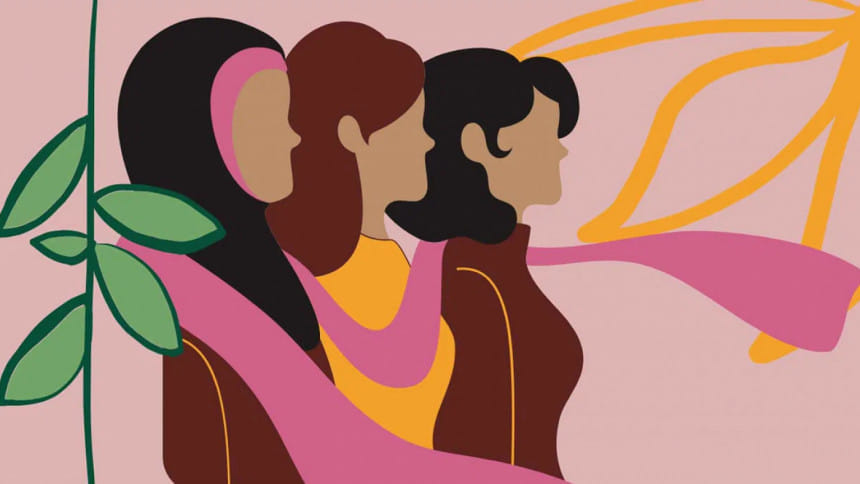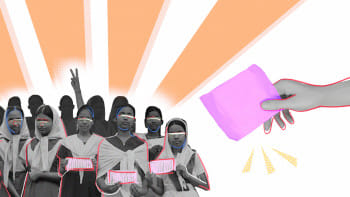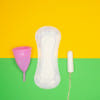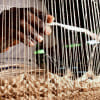Talk about period poverty to eliminate it

Menstrual health is usually defined as the state of complete physical, mental, and social well-being in relation to the menstrual cycle, rather than just the absence of disease or infirmity. To ensure this well-being, menstruating individuals (including women, girls, and others) need to have access to age-appropriate information and education about their menstrual cycle, alongside support during life-course changes.
Regarding the social aspect, creating a dignified and positive environment, free from stigma and mental distress, is crucial for people to be able to make informed decisions about their menstrual health. This includes being able to participate fully in civil, cultural, economic, social, and political spheres of life, such as attending work and school. One of the conditions where socioeconomic and cultural barriers prevent individuals from addressing menstrual health needs is called "period poverty."
Period poverty is the lack of access to sanitary products due to financial as well as knowledge constraints, and is related to poor menstrual hygiene management (MHM). The World Health Organization and Unicef stress on MHM so that women and adolescent girls are able to use clean materials to absorb or collect menstrual blood, and also change those out in privacy as often as necessary. MHM also includes having access to soap and water at restrooms, and safe facilities to dispose of the used materials. Additionally, it involves these groups having access to basic information about the menstrual cycle and how to manage it with dignity and without discomfort or fear.
Period poverty has been creating a new kind of social stratification and discrimination among Bangladeshi women. Girls and women who have proper access to information and menstrual hygiene products both at home and schools or workplaces do not need to give up school days or workdays. But where the lack of facilities is allowed to persist, period poverty affects the empowerment of women.
According to the World Bank, while more than 300 million individuals experience menstruation on a given day globally, many cannot address their menstrual cycle with minimum health standards and dignity. In Bangladesh, most adolescent girls, especially in rural and marginal communities, have a lack of scientific and formal knowledge about menstrual hygiene. According to the National Hygiene Survey 2018, about 50 percent of adolescent girls aged between 10-19 years and 64 percent of women aged 20-49 years use old cloth during their period in Bangladesh. They do not know that the use of unhygienic products increases the possibility of infection.
Research shows that low income, lack of proper information about period, belief in taboos, widespread stigmas, negligence of male members towards menstruation, and lack of water, sanitation, and hygiene (WASH) facilities at schools and workplaces are the key causes of period poverty in Bangladesh. While only 35 percent of primary and 73 percent of secondary schools have separate toilets for girls, only 24 percent of primary schools and 38 percent of secondary schools have both water and soap available at the toilets. As a result, even though many girls and women can afford menstrual products, they do not feel comfortable changing sanitary pads or clothes at schools or workplaces.
Period poverty has serious impacts on the overall socioeconomic well-being of girls and women. Numerous effects of period poverty on the physical as well as the psychological health of females resulting in absenteeism of girls at school, absenteeism of women at work, and social isolation have been identified in various research. Moreover, period poverty has been creating a new kind of social stratification and discrimination among Bangladeshi women. Girls and women who have proper access to information and menstrual hygiene products both at home and schools or workplaces do not need to give up school days or workdays. But where the lack of facilities is allowed to persist, period poverty affects the empowerment of women.
Research shows that period poverty can only be tackled by addressing both infrastructural and social issues relating to it. On the one hand, ensuring the availability of hardware like separate toilets, soap, clean water, and sanitary pads is important in schools and workplaces. On the other hand, changing society's perception of periods and making it comfortable as well as secure for menstruating individuals to avail and utilise the products is equally important.
If the male members of households and communities are more aware and respectful towards the menstrual health of female members, girls and women would feel more comfortable buying and using sanitary products whenever they need. Thus, there is a strong need for education as well as awareness programmes to improve people's knowledge on menstrual hygiene by addressing social-cultural stigmas and by providing accurate information about menstrual health. Additionally, the affordability of sanitary products is important to ensure as girls and women from low-income households, unable to afford them, will resort to cheaper and often unhealthier alternatives.
The issue of menstrual hygiene and period poverty should be addressed in a coordinated manner by government, non-government, and relevant international agencies. And lastly, conventional attitudes towards menstrual products should be changed, from being seen as a concession to a right of girls and women.
Md Imran Hossain Bhuiyan is assistant professor of development studies at Dhaka University. Email him at [email protected]
Dalia Rahman is a social entrepreneur and researcher.
Views expressed in this article are the author's own.
Follow The Daily Star Opinion on Facebook for the latest opinions, commentaries and analyses by experts and professionals. To contribute your article or letter to The Daily Star Opinion, see our guidelines for submission.

 For all latest news, follow The Daily Star's Google News channel.
For all latest news, follow The Daily Star's Google News channel. 









Comments